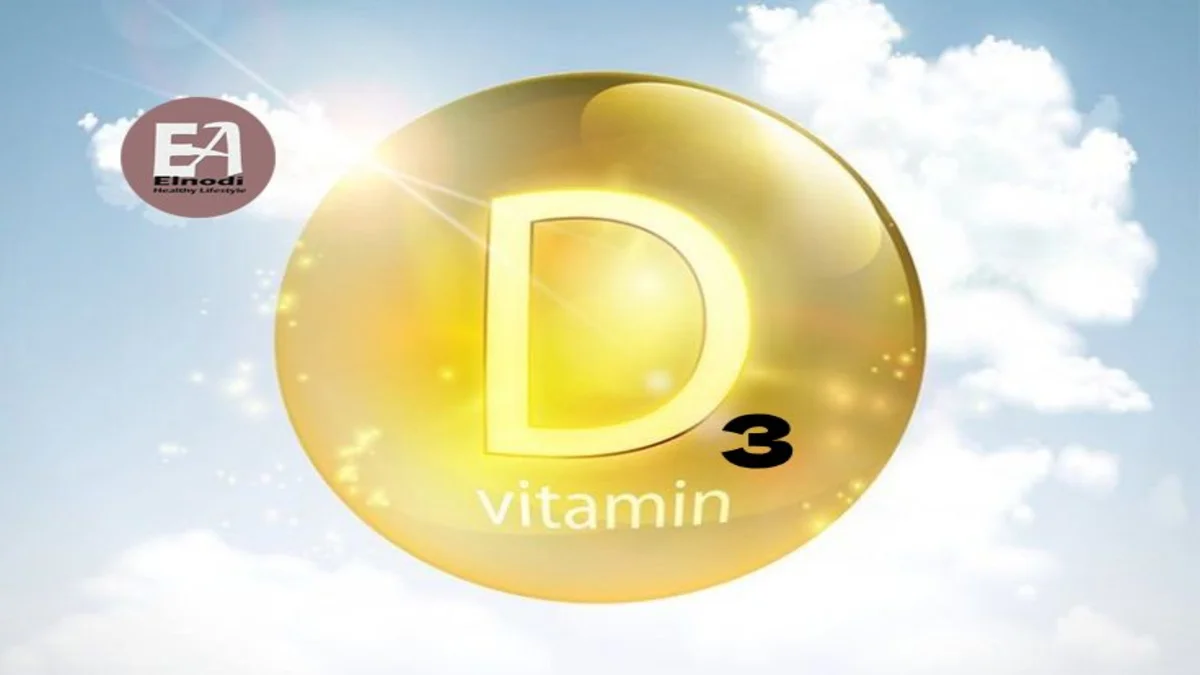Have you ever wondered why doctors recommend taking Vitamin D3 supplements?
Vitamin D3 is good for what? Also known as the sunshine vitamin, plays a crucial role in various bodily functions.
Understanding the importance of it and how it can benefit your health is essential. From supporting bone health to improving immune function and reducing the risk of chronic diseases, Vitamin D3 has a wide range of benefits that you should know about. In this article, we will explore the various ways it can positively impact your overall health and well-being.
What is vitamin D3?
Vitamin D, sometimes referred to as the “sunshine vitamin,” is a necessary nutrient that can be obtained through sun exposure, food, and supplements. This vitamin is essential for the health of bones, the immune system, and many other areas.
However, a large number of individuals are still missing out; according to some data, 48% of people worldwide have blood levels of vitamin D that are below acceptable. Supplementing with it can be a convenient and safe way to help you fulfill your needs, particularly if you run the risk of not getting enough of it.
Vitamin D3 is good for what?
Unlocking the Benefits of Vitamin D3
Incorporating Vitamin D3 into your daily routine can have a multitude of benefits for your overall health and well-being.
Here’s why it is good for you:
Enhances Bone Health
Are you wondering what the buzz is all about when it comes to Vitamin D3?
Well, one of the key benefits of this essential nutrient is its ability to enhance bone health.
Let’s delve into why it is good for bone health and how it can benefit you.
Key Points:
- Bone Density: By promoting calcium absorption, it helps in maintaining optimal bone density, reducing the risk of conditions like osteoporosis.
- Muscle Function: Apart from bones, it also supports muscle function, contributing to overall bone health and reducing the likelihood of falls and fractures.
- Immune System Support: It has been linked to immune system modulation, potentially reducing inflammation and promoting bone health.
In conclusion, it is not just essential for bone health but also plays a significant role in overall well-being.
By ensuring an adequate intake of Vitamin D3 through sunlight exposure, diet, or supplements, you can support your bone health and enjoy the numerous benefits it offers.
Promotes Immune Function
Vitamin D3, often referred to as the “sunshine vitamin,” offers a myriad of advantages for overall health and well-being.
One of the key benefits of Vitamin D3 is its role in promoting immune function.
Here’s why it is good for enhancing your immune system:
- Reduced Inflammation: Adequate levels of it can help reduce inflammation in the body. Chronic inflammation is associated with various diseases, so maintaining optimal levels can contribute to a healthier immune system.
- Antimicrobial Defense: It boosts the production of antimicrobial peptides, which are essential for fighting off infections caused by bacteria, viruses, and other harmful microorganisms.
Ensuring that you have sufficient Levels through exposure to sunlight, dietary sources, or supplements can significantly benefit your immune system, helping you stay healthy and resilient against illnesses.
Promotes Immune Function
Vitamin D3, also known as the “sunshine vitamin,” plays a crucial role in supporting various functions of the body.
Here are the key points you need to know to understand why it is so important:
- Mood Regulation: Research suggests a link between deficiency and mood disorders like depression. By maintaining optimal levels of vitamin D3, you can support overall mental well-being.
- Heart Health: Adequate Levels are associated with lower risk factors for cardiovascular diseases. It helps regulate blood pressure and reduce the likelihood of heart issues.
- Supports Immune Function: It plays a vital role in boosting the immune system. It helps the body defend against infections, viruses, and diseases, promoting overall health and well-being.
Incorporating Vitamin D3 into your daily routine through sunlight exposure, diet, or supplements can have a significant impact on your overall health.
So, make sure to prioritize this essential nutrient for a healthier you.
May Support Weight Management
How Vitamin D3 Can Help Support Weight Management
It plays a crucial role in various bodily functions, one of which includes supporting weight management.
Understanding how it aids in maintaining a healthy weight can be beneficial for individuals looking to achieve their weight goals.
Here are some key points to consider:
- Appetite Control: Adequate levels of Vitamin D3 have been associated with helping regulate appetite. This can potentially prevent overeating and support better portion control, contributing to weight management efforts.
- Fat Storage Regulation: It may also play a role in how the body stores fat. By maintaining sufficient levels of Vitamin D3, individuals may help regulate fat storage, which can impact weight management.
By understanding how Vitamin D3 influences weight management through its various mechanisms, individuals can make informed decisions regarding their health and wellness journey.
Regulates Mood
It plays a crucial role in mood regulation, impacting overall mental well-being.
Here’s why it’s essential:
- Supports Cognitive Function: Research suggests a correlation between vitamin D deficiency and cognitive impairment. By ensuring sufficient vitamin D3 levels, you can support cognitive function, including memory and focus.
- Reduces Anxiety: Studies have shown that it may help alleviate symptoms of anxiety. By maintaining optimal levels of this vitamin, individuals may experience a decrease in anxiety levels and an overall sense of calm.
- Enhances Sleep Quality: Adequate levels can positively impact sleep quality. By promoting healthy sleep patterns, individuals are likely to feel more rested and alert during the day.
Incorporating it into your daily routine can contribute to better mood regulation and overall mental wellness.
Sources of Vitamin D3
Dietary Sources
Food should always be the first source of vitamin D. Here are some of the best dietary sources of vitamin D3 to bolster your intake:11
| Food | IU | Serving size | % RDA |
|---|---|---|---|
| Beef liver | 42 | 3 ounce | 5% |
| Butter | 9 | 1 tablespoon | 1% |
| Cereal | 80 | 1-1/2 ounce | 10% |
| Cheese | 12 | 1 ounce | 2% |
| Cod liver oil | 1,360 | 1 tablespoon | 170% |
| Egg yolks | 44 | 1 yolk | 6% |
| Fresh salmon | 570 | 3 ounce | 71% |
| Halibut | 384 | 1/2 fillet | 48% |
| Mackerel | 360 | 1/2 fillet | 45% |
| Milk, fortified | 120 | 1 cup | 15% |
| Sardines | 46 | 2 fish | 6% |
| Trout | 645 | 3 ounce | 81% |
| Tuna | 40 | 3 ounce | 5% |
Some manufacturers of fruit juices, dairy products, margarine, and plant-based milk add vitamin D3 to boost their product’s nutritional value, as well.
Supplements
As convenient as they are, supplements should never be your primary source of vitamin D (or any nutrient, for that matter). They are only intended when you are not getting enough from your diet.
Vitamin D3 is readily available in supplement form and sold as capsules, softgels, gummies, and liquid drops. Most are formulated in doses higher than you need per day—between 2,000 and 10,000 IUs—but this is not a concern as only a portion will be absorbed. The rest will be passed in urine.
Talk to your healthcare provider about the best dose based on age and medical history.
Is Vitamin D3 Original from the Sun?
While it can be obtained through many food sources and supplements, frequent sun exposure is also an effective way to meet your needs. This is because exposure to UV radiation from the sun causes the skin to create vitamin D.
To fulfill your vitamin D requirements, you do not, however, need to sunbathe (although sun protection is still recommended to lower your risk of skin cancer). Dr. White states that 20 minutes or more of sun exposure on the face and arms is usually sufficient to synthesize enough vitamin D in your skin to maintain vitamin D sufficiency, provided the ambient temperature is above 45 degrees Fahrenheit.
How can I tell whether I require more vitamin D?
A vitamin D deficit is defined as not getting enough vitamin D to meet the body’s requirements. Blood tests can be used to diagnose this.
Nonetheless, the U.S. Preventive Services Task Force advises against routinely monitoring adults for vitamin D deficiency if they do not exhibit any symptoms.
Not every person with insufficient vitamin D has symptoms. People who do could take note:
- Muscle and/or bone pain
- Muscle weakness
- History of fractures
- Muscle twitching
Vitamin D3 vs. Vitamin D2
When it comes to understanding the benefits of Vitamin D, it’s essential to recognize the differences between Vitamin D3 and Vitamin D2.
While both are crucial for overall health, they function differently in the body and offer distinct advantages.
Here are some key points to consider:
- Effectiveness: Studies suggest that Vitamin D3 is more effective at raising and maintaining vitamin D levels in the body compared to Vitamin D2.
- Supplementation: Vitamin D3 supplements are more commonly recommended by healthcare providers due to their superior absorption and efficacy.
- Health Benefits: Both forms of Vitamin D play a critical role in supporting bone health, immune function, and overall well-being. However, Vitamin D3 may offer additional benefits for cardiovascular health and mood regulation.
In conclusion, while both Vitamin D3 and Vitamin D2 are important, Vitamin D3 appears to be more effective and beneficial for overall health.
It’s essential to ensure an adequate intake of Vitamin D to support your body’s various functions and maintain optimal well-being.
Vitamin D3 Precautions
When it comes to reaping the benefits, there are some precautions to keep in mind to ensure you maximize its positive effects while minimizing any potential risks.
Understanding these precautions is vital for maintaining your overall health and well-being.
Here are some key points to consider:
- Avoid Excessive Dosage: While it is beneficial, taking excessive doses can lead to toxicity. It’s crucial to follow the recommended dosage guidelines provided by healthcare professionals.
- Monitor Your Levels: Regularly monitoring your Vitamin D levels through blood tests is important to ensure you are within the optimal range. This will help prevent any deficiencies or excesses.
- Consider Interactions: If you are taking other medications or have underlying health conditions, discuss potential interactions with your healthcare provider to avoid any adverse effects.
By taking these precautions, you can safely enjoy the benefits and support your overall health.
Conclusion
In conclusion, the benefits are vast and essential for overall health and well-being.
By exploring the question “Vitamin D3 is good for what,” we have uncovered a plethora of advantages that this vital nutrient offers to the human body.
From strengthening bones and muscles to boosting the immune system and promoting overall heart health, It plays a crucial role in various bodily functions.
Understanding the significance of it is crucial in maintaining optimal health, especially considering the prevalence of deficiencies across populations worldwide.
By incorporating into your daily routine through sunlight exposure, dietary sources, or supplements, you can harness its numerous benefits and support your body’s natural functions.
Through this article, we have highlighted the importance of Vitamin D3 in promoting bone health, reducing the risk of chronic diseases, and enhancing overall well-being.
By unlocking the benefits, you can take proactive steps towards maintaining a healthy lifestyle and ensuring your body receives the essential nutrients it needs to thrive.
So, remember to prioritize your intake for a healthier and happier life.
FAQs
Is it good to take vitamin D3 every day?
Will vitamin D3 give me energy?
Does vitamin D3 help you sleep?
Why vitamin D3 is taken once a week?
References:
- https://pubmed.ncbi.nlm.nih.gov/29243029
- https://pubmed.ncbi.nlm.nih.gov/31172459
- https://pubmed.ncbi.nlm.nih.gov/32252338
- https://www.ncbi.nlm.nih.gov/pmc/articles/PMC7281985
- https://pubmed.ncbi.nlm.nih.gov/32365423
- https://pubmed.ncbi.nlm.nih.gov/32022867
- https://pubmed.ncbi.nlm.nih.gov/30246883
- https://www.ncbi.nlm.nih.gov/pmc/articles/PMC6158375
- https://www.ncbi.nlm.nih.gov/books/NBK279023
- https://www.ncbi.nlm.nih.gov/labs/pmc/articles/PMC6266123
- https://www.ncbi.nlm.nih.gov/labs/pmc/articles/PMC7281985
- https://www.nhs.uk/live-well/healthy-body/how-to-get-vitamin-d-from-sunlight
- https://pubmed.ncbi.nlm.nih.gov/28378273
- https://www.ncbi.nlm.nih.gov/labs/pmc/articles/PMC7335963
- https://www.ncbi.nlm.nih.gov/pmc/articles/PMC6624108
- https://www.ncbi.nlm.nih.gov/pmc/articles/PMC7461773
- https://www.ncbi.nlm.nih.gov/books/NBK441912
- https://pubmed.ncbi.nlm.nih.gov/36263304
Disclaimer: The information provided here is for educational/awareness purposes only and is not intended to be a substitute for medical treatment by a healthcare professional and should not be relied upon to diagnose or treat any medical condition. The reader should consult a registered medical practitioner to determine the appropriateness of the information before consuming any medication. Elnodi does not provide any guarantee or warranty (express or implied) regarding the accuracy, adequacy, completeness, legality, reliability, or usefulness of the information; and disclaims any liability arising thereof.





